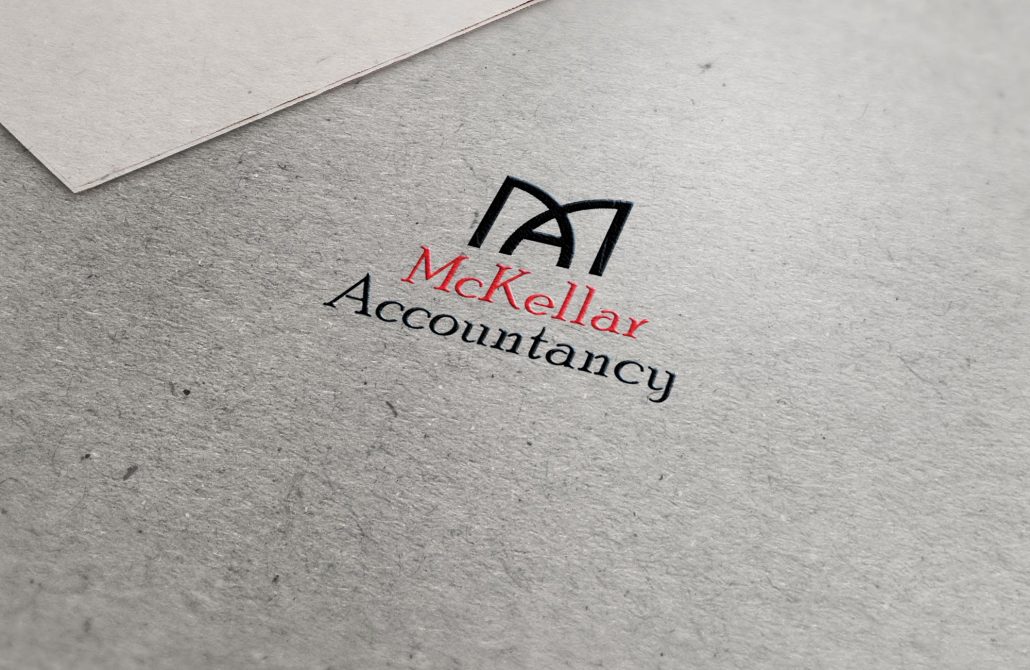[av_image src=’https://www.mckellaraccountancy.com/wp-content/uploads/2017/02/parallax.jpg’ attachment=’41’ attachment_size=’full’ align=’center’ styling=” hover=” link=” target=” caption=” font_size=” appearance=” overlay_opacity=’0.4′ overlay_color=’#000000′ overlay_text_color=’#ffffff’ animation=’no-animation’][/av_image]
[av_heading heading=’McKellar Accountancy March eNews’ tag=’h3′ style=” size=” subheading_active=” subheading_size=’15’ padding=’10’ color=” custom_font=”][/av_heading]
[av_textblock size=” font_color=” color=”]
Enews March 2020
In this month’s Enews we report on a change to the sick pay rules as a result of the coronavirus and confirmation that the off-payroll working rules will be rolled out from 6 April 2020. We also consider the latest HMRC guidance on minimum wage increases, new company car advisory fuel rates, help for business flood victims and a consultation on freeports. With calls to raise taxes in the forthcoming Budget and a reminder to consider year end tax planning, there are lots of issues to update you on.
Article Index
- Coronavirus measure: Statutory Sick Pay from ‘day one’
- Review confirms off-payroll working rules to go ahead from April 2020
- IFS calls for Chancellor to raise taxes in upcoming Budget
- Minimum Wage increases
- Advisory fuel rates for company cars
- Don’t forget to make tax efficient investments ahead of the tax year end
- Freeports
- Additional financial support for flooding victims
Coronavirus measure: Statutory Sick Pay from ‘day one’
The Prime Minister, Boris Johnson, has announced that employees will be entitled to Statutory Sick Pay (SSP) from day one when self-isolating rather than having to wait until day four under the SSP waiting days rules.
The change will be included in a package of measures, to be introduced by emergency legislation, to deal with coronavirus.
Updating Parliament on the Government’s response to the virus, Prime Minister Boris Johnson told MPs:
‘I can today announce that the Health Secretary will bring forward, as part of our emergency legislation measures, to allow the payment of Statutory Sick Pay from the very first day you are sick instead of four days under the current rules.
‘No one should be penalised for doing the right thing.’
The Prime Minister had earlier said:
‘We are not at the point yet where we are asking large numbers of people to self-isolate, but that may of course come if large numbers have the symptoms.
‘If they stay at home, they are helping to protect all of us by preventing the spread of the virus.’
The press release advises that the change will be a temporary measure to respond to the outbreak and will lapse when it is no longer required. We will keep you updated on developments.
Internet links: GOV.UK news GOV.UK guidance
Review confirms off-payroll working rules to go ahead from April 2020
The government has confirmed that reforms to off-payroll working rules for the private sector will go ahead from 6 April 2020.
The off-payroll rules have applied to the public sector since 2017 and the government has carried out a review of the roll-out to the private sector. The review has now concluded, and the changes will go ahead alongside the implementation of measures to support affected businesses and individuals.
From 6 April 2020, the new tax rules will use the 2017 changes as a starting point for the extension to medium and large organisations in the private sector. These reforms will shift the responsibility for assessing employment status to medium and large organisations engaging workers via an intermediary, typically a Personal Service Company (PSC).
HMRC said it will take a ‘light touch approach’ and businesses will not have to pay penalties for inaccuracies in the first year, except in cases of deliberate non-compliance.
The government will also introduce a legal obligation on organisations to respond to requested information about their size from the agency or worker, to make it clearer who is responsible for determining the worker’s tax status.
Commenting on the changes, Jesse Norman, Financial Secretary to the Treasury, said:
‘It is only right that the off-payroll rules are applied consistently across all sectors. Two people sitting side by side doing the same work for the same employer should be taxed in the same way.
‘Following a review, the government is announcing a package of measures to help individuals and businesses implement these changes smoothly.’
Internet links: GOV.UK review GOV.UK news
IFS calls for Chancellor to raise taxes in upcoming Budget
The Institute for Fiscal Studies (IFS) has urged Chancellor Rishi Sunak to use the forthcoming Budget to raise taxes.
The think tank stated that the Chancellor either needs to raise taxes or ‘break a fiscal rule’ in order to avoid day-to-day spending cuts beyond 2021.
However, the Conservative Party’s election manifesto promised not to raise income tax, national insurance or VAT.
The IFS has also called on the Chancellor to abolish Entrepreneurs’ Relief and end the ‘ludicrously generous tax treatment of capital gains at death and of inherited pension pots’.
Commenting on the matter, Paul Johnson, Director of the IFS, said:
‘Rishi Sunak’s first Budget could be the most important fiscal event in years. It will set the direction of policy for the next five years. If this new government is going to make radical changes to taxes and spending, this surely is the time to do it.
‘There are plenty of tax rises which would both raise revenue from better off individuals and improve the coherence of the tax system.’
We will update you on pertinent Budget announcements.
Internet link: FS publications
Minimum Wage increases
The National Minimum Wage (NMW) and National Living Wage (NLW) are the legal minimum wage rates that must be paid to employees. Employers are liable to be penalised for not complying with the NMW and NLW rules.
There are different levels of NMW and NLW, depending on age and whether the employee is an apprentice. The rates are due to increase from 1 April 2020 as shown in the following table:
| Rate from 1 April 2019 | Rate from 1 April 2020 | |
| NLW for workers aged 25 and over | £8.21 | 8.72 |
| NMW main rate for workers aged 21-24 | £7.70 | 8.20 |
| NMW 18-20 rate | £6.15 | 6.45 |
| NMW 16-17 rate for workers above school leaving age but under 18 | £4.35 | 4.55 |
| NMW apprentice rate | £3.90 | 4.15 |
The NMW apprentice rate applies for apprentices under 19 or 19 or over and in the first year of their apprenticeship.
There are no exemptions from paying the NMW on the grounds of the size of the business.
The government has announced that HMRC will continue publicly naming employers that fail to pay their workers the NLW or NMW, following a review of the scheme. The naming scheme will resume calling out businesses failing to pay their workers their minimum wage entitlements.
The government has also increased the threshold for naming employers from £100 to £500, meaning that employers owing arrears of more than £500 in NMW payments to their employees will now be named.
Business Minister Kelly Tolhurst said:
‘Anyone who is entitled to the minimum wage should receive it – no ifs, no buts – and we’re cracking down on companies that underpay their workers.
‘We also want to make it as easy as possible for employers, especially small businesses and those trying to do right by their staff, to comply with the NMW rules, which is why we’re reforming regulations.’
The government is also revising the pay arrangements available to employers engaging ‘salaried hours workers’. These are workers who receive an annual salary in equal instalments for a set number of contracted hours. Under the revised rules, workers who are often paid hourly or per day and consequently receive different amounts of pay every month, such as those in the retail industry, can be classified as salaried workers. The aim of the changes is to provide more flexibility in how salaried workers are paid without reducing protections for workers.
The changes also mean that employers employing these workers are less likely to caught out by the NMW legislation due to the differences in their hours from one month to the next.
If you would like help with payroll matters please get in touch.
Internet links: GOV.UK NMW GOV.UK news
Advisory fuel rates for company cars
New company car advisory fuel rates have been published which take effect from 1 March 2020. The guidance states: ‘You can use the previous rates for up to one month from the date the new rates apply’. The rates only apply to employees using a company car.
The advisory fuel rates for journeys undertaken on or after 1 March 2020 are:
| Engine size | Petrol |
| 1400cc or less | 12p |
| 1401cc – 2000cc | 14p |
| Over 2000cc | 20p |
| Engine size | LPG |
| 1400cc or less | 8p |
| 1401cc – 2000cc | 10p |
| Over 2000cc | 14p |
| Engine size | Diesel |
| 1600cc or less | 9p |
| 1601cc – 2000cc | 11p |
| Over 2000cc | 13p |
Hybrid cars are treated as either petrol or diesel.
HMRC guidance states that the rates only apply when you either:
- reimburse employees for business travel in their company cars or
- require employees to repay the cost of fuel used for private travel.
The Advisory Electricity Rate for fully electric cars is 4 pence per mile. Electricity is not a fuel for car fuel benefit purposes.
You must not use these rates in any other circumstances.
If you would like to discuss your car policy, please contact us.
Internet link: GOV.UK AFR
Don’t forget to make tax efficient investments ahead of the tax year end
With the end of the tax year looming there is still time to save tax for 2019/20.
- Make full use of your ISA allowance – ISAs can offer a useful tax free way to save, whether this is for your children’s future, a first home or another purpose. Individuals may invest up to a limit of £20,000 for the 2019/20 tax year. Savers have until 5 April 2020 to make their 2019/20 ISA investment.
- Pensions provide significant planning opportunities. The annual allowance (AA) which is the maximum you can contribute to a pension and still get tax relief, is generally £40,000. Exceeding this can result in an AA clawback charge. However, in many circumstances individuals may have unused AA from the three previous tax years which can be used in 2019/20, providing the means of making a significant contribution without incurring a charge. Please contact us for advice specific to your circumstances.
These are only two suggestions that you may wish to consider as part of your tax planning strategy. Contact us for more information.
Internet links: GOV.UK ISAs Pensions Advisory Service AA
Freeports
The government has launched a consultation on proposals to create up to ten freeports across the UK which would have different customs rules than those which apply in the rest of the UK.
The government is considering a UK freeport model which would include multiple customs zones located within or away from a port, as well as a type of special economic zone (SEZ) designated over or around the customs zones and intends to work with the devolved administrations to develop proposals to allow freeports to be created in Scotland, Wales and Northern Ireland, in addition to those in England.
The proposals include the following customs and tariff benefits for businesses bringing goods into a freeport site:
- duty suspension, with no tariffs, import VAT or excise to be paid on goods brought into a freeport from overseas until they leave the freeport and enter the UK’s domestic market
- duty inversion if the duty on a finished product is lower than that on the component parts, allowing businesses to benefit by importing components duty free, manufacture the final product in the freeport, and then pay the duty at the rate of the finished product when it enters the UK’s domestic market
- duty exemption for re-exports allowing businesses to import components duty free, manufacture the final product in the freeport and pay no tariffs when the final product is re-exported
- simplified customs procedures for businesses accessing freeports.
Freeports are secure customs zones located at ports where business can be carried out inside a country’s land border but where different customs rules apply. Typically, goods brought into a freeport do not attract a requirement to pay duties until they leave the freeport and enter the domestic market. No duty is payable at all if the goods are re-exported.
Internet link: GOV.UK consultation
Additional financial support for flooding victims
The government has pledged thousands of pounds in additional financial support for victims of the recent floods.
The Government has announced that businesses in England affected by the floods will be eligible for 100% business rates relief for at least three months. It also stated that small and medium-sized enterprises (SMEs) that have experienced severe, uninsurable losses will be able to claim up to £2,500 from the Business Recovery Grant.
The government also announced that businesses affected by flooding will be able to apply for up to £5,000 to help make them more resilient to future flooding.
Commenting on the funding, Robert Jenrick, Secretary of State for Housing, Communities and Local Government, said:
‘Storm Dennis and Ciara have severely impacted a large number of households and businesses, and I recognise how destabilising this can be.
‘This extra support, including new funding, will help people in the worst hit areas to recover and get back on their feet as soon as possible.’
The announcement only applies to businesses in England. Flooding is a devolved issue for Wales, Scotland and Northern Ireland.
Internet link: GOV.UK news
[/av_textblock]
[av_social_share title=’Share this entry’ style=” buttons=” share_facebook=” share_twitter=” share_pinterest=” share_gplus=” share_reddit=” share_linkedin=” share_tumblr=” share_vk=” share_mail=”][/av_social_share]







